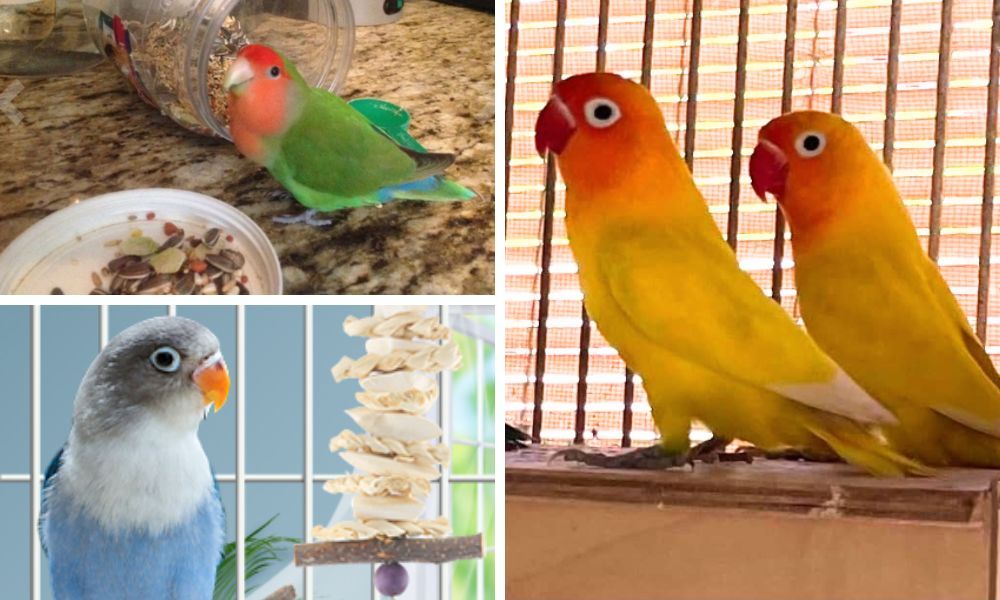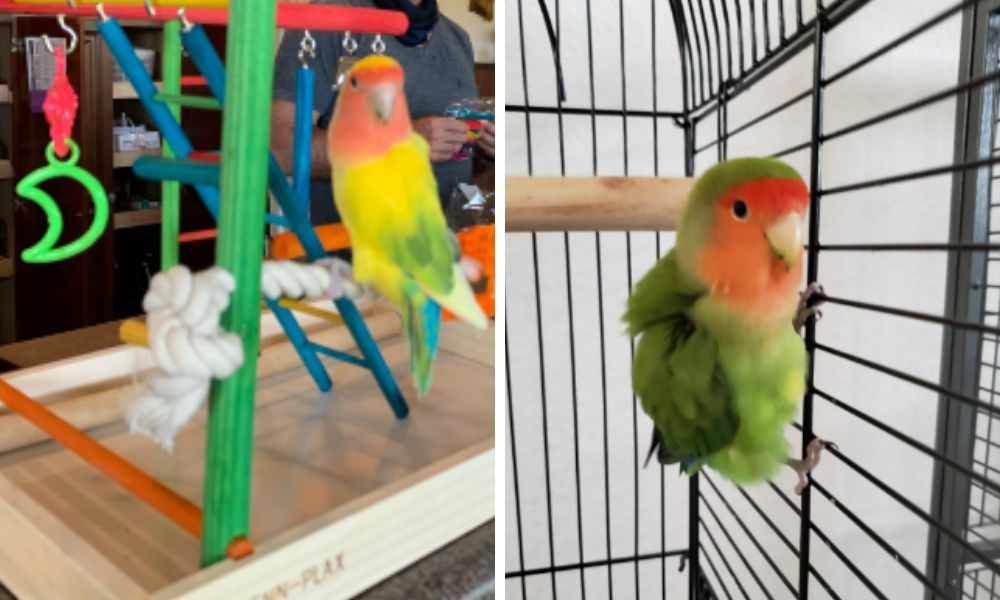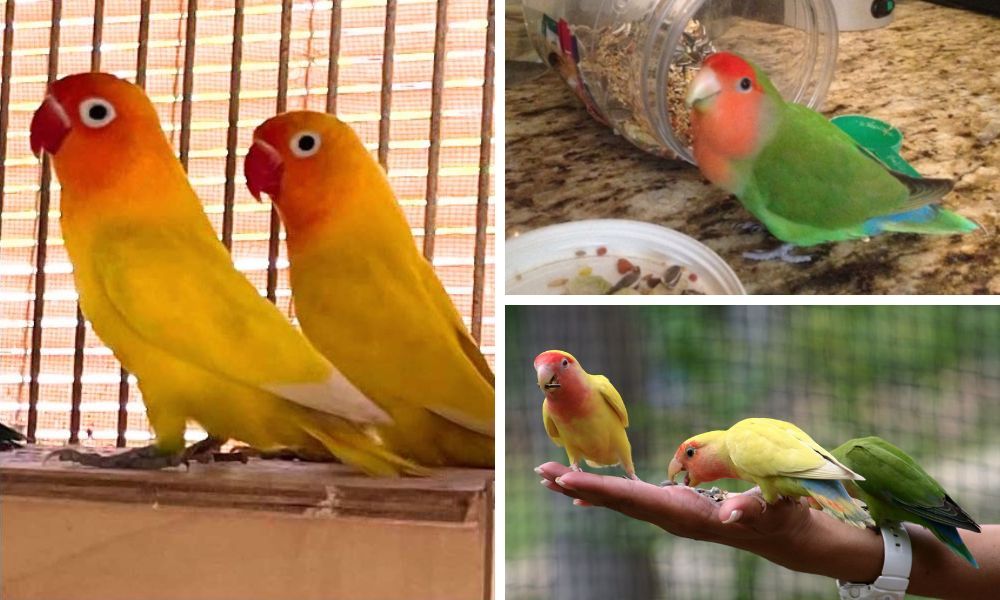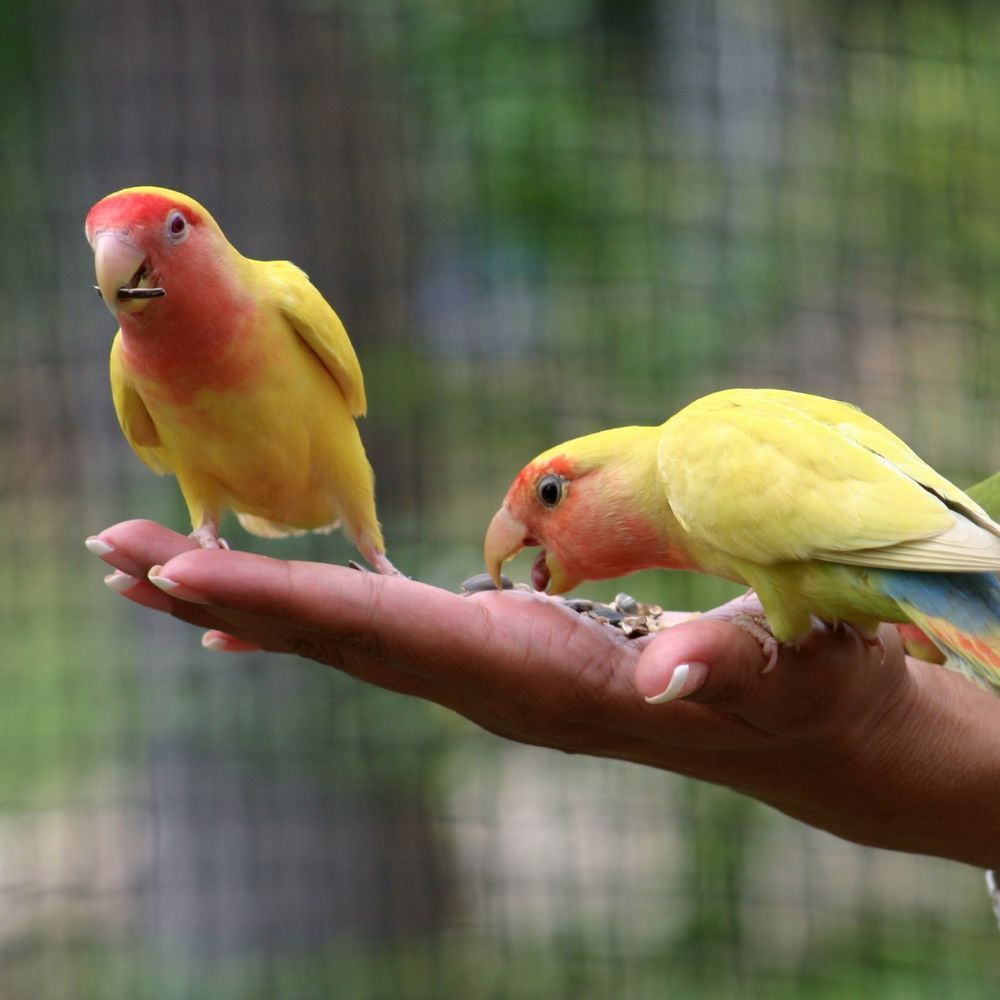Love Birds Food: How to Choose the Right Food for Your Pet Birds
Do you want to know the secret to keeping your Lovebirds healthy and happy? Discover the answers on how to choose the right food for your feathered friends!

Lovebirds are fascinating and adorable birds that make excellent pets. Keeping these birds requires not only attention but also providing them with the right type of food. The proper food is crucial to your lovebird's health, their growth, and their ability to live a long and fulfilling life. Choosing the right love birds food for your pet birds requires some research and considerations. This post aims to provide a comprehensive guide to help you choose the best and nutritional foods for your lovebirds.
Understand your Lovebird's Nutritional Needs
Lovebirds require a balanced diet that includes essential nutrients to support their growth, development, and immunity. Lovebirds are seed-eating birds, but their diet should include other foods such as fruits and vegetables. Their diet should consist of seed mixes designed for lovebirds, pellets designed specifically for lovebirds, fruits, and green leafy vegetables. It is also good to offer your lovebirds other types of food such as boiled eggs, cooked chicken, and small quantities of cheese.
Check the Label on the Packaging
When shopping for lovebird food, it is important to read the label carefully to make sure that it contains all of the essential nutrients they need. The best foods are those with a high protein content and low fat. Look for ingredients such as canary grass seed,sunflower seeds, oats, wheat germ oil, flaxseed, and alfalfa meal. Avoid sugary treats or those that contain artificial flavors, colors, and preservatives as these are not good for your pet birds' health.
Avoid Feeding Your Lovebirds Human Food
Although some foods that humans eat can be safe for lovebirds to consume in small quantities, it is generally advised to avoid feeding them human food altogether. Human foods, especially processed ones, often contain too much sugar and unhealthy fats which can cause health issues for your pet bird. Additionally, some human foods like chocolate and onions are toxic to birds and should never be given to them.
Quality of the food
The quality of the food you feed your lovebirds is equally crucial. Look for high-quality foods that include seeds, fresh fruits, and vegetables. Also, pellets designed for lovebirds and other types of foods offer your birds the necessary nutrients that are crucial to their overall health. Look for bird food that does not contain any artificial colors, preservatives, or flavors.
Store your Lovebirds Food Properly
Once you have purchased the right type of food for your pet birds, make sure to store it properly. Keep the food in an airtight container and place it away from heat sources and direct sunlight. Also, changed out the food regularly to make sure that your lovebirds have access to fresh and nutritious food.
Provide a Variety of Foods
Provide variety in your bird's diet. Change up their fruits, fresh vegetables, proteins, and seeds from time to time. This will help keep their diets balanced and ensure they get all the nutrients they need for a long and healthy life. You can read more about balanced diet for your lovebirds by clicking the picture below.

Variety is essential when it comes to choosing the right food for your lovebirds. Lovebirds can become picky eaters, and feeding them with one type of food can lead to boredom and nutritional deficiencies. Instead, provide your lovebirds with a variety of fresh foods to ensure that they are not missing any essential nutrients.
It is advisable to purchase fresh food that contains no preservatives, chemicals, or artificial ingredients. Avoid feeding your lovebirds with processed or artificially flavored foods because they contain high amounts of sugar and salt that are not good for your bird's health.
Feeding Schedule
Establishing a feeding schedule is important when it comes to feeding your lovebirds. Lovebirds should be fed twice a day or more, depending on their age. When feeding your lovebirds, it is essential to monitor the amount of food they consume. Overfeeding your lovebirds can lead to overweight and other health problems such as obesity.

Lovebird Food FAQs
What is the best bird food for lovebirds?
The best food for lovebirds is a balanced diet that includes seeds, fresh fruits and vegetables, pellets designed specifically for lovebirds, boiled eggs, cooked chicken, and small quantities of cheese. Avoid foods with artificial colors, flavors and preservatives as they are not good for your pet birds’ health.
How much food should I feed my lovebirds?
Lovebirds should be fed twice a day or more, depending on their age. Monitor the amount of food your lovebird consumes and avoid overfeeding as it can lead to overweight and other health problems such as obesity.
What foods are toxic for my lovebirds?
Foods that are toxic for lovebirds include chocolate, onions, avocado, and caffeine. Additionally, avoid feeding your lovebirds sugary treats or human foods that contain artificial flavors, colors, and preservatives.
Can I give my lovebird bread?
Bread is not recommended for lovebirds as it can cause digestive problems. If you want to treat your lovebird with something special, provide them with a piece of fresh fruit or a small amount of cooked chicken.
How to feed lovebirds?
The best way to feed lovebirds is to establish a regular feeding schedule and provide them with a balanced diet that includes fresh fruits, vegetables, seeds, pellets designed specifically for lovebirds, boiled eggs, cooked chicken, and small quantities of cheese. Veterinarians typically recommend offering between one and one and a half tables poons of seed or pelleted food daily.
How can I ensure my lovebird is getting the right nutrition?
Wild Lovebirds would eat a great variety of seed types in the wild as different plants come into season Ensuring your lovebird is getting the right nutrition requires providing them with a balanced diet that includes essential nutrients to support their growth, development, and immunity. A good diet should consist of seed mixes designed for lovebirds, pellets designed specifically for lovebirds, fruits, and green leafy vegetables. Additionally, check the label on the packaging to make sure that it contains all of the essential nutrients they need. Furthermore, provide variety in your lovebird's diet by changing up their fruits, vegetables, proteins, and seeds from time to time.

What should lovebirds not eat?
Lovebirds should not eat foods that are toxic to them, such as chocolate, onions, and avocado. Additionally, they should avoid processed or artificially flavored foods as they contain high amounts of sugar and salt that are not good for your bird's health. Finally, sugary treats or human foods with artificial colors, flavors and preservatives should be avoided.
What vegetables do lovebirds eat?
Lovebirds can eat a variety of vegetables, such as spinach, kale, carrots, peppers, and squash. Additionally, they can enjoy various fruits and nuts such as apples, pears, peaches, walnuts and almonds. For an extra treat you can provide them with mealworms or boiled eggs. Make sure to feed your lovebirds fresh fruits and vegetables that are free of pesticides.
What type of seed mix should I give my lovebirds?
Look for a seed mix specifically designed for lovebirds. This type of seed mix usually contains millet, canary grass seeds, oats, buckwheat, and flax. Avoid mixes that contain sunflower seeds as they are high in fat content and can lead to obesity. Additionally, provide your lovebirds with small amounts of fresh fruit and vegetables as these are important sources of vitamins and minerals. Lovebirds eat a variety of seeds, fruits, berries and vegetation such as leaf buds in the wild.
Can I give my lovebird bird food treats?
Yes, you can give your lovebird bird food treats in moderation. Look for treats specifically designed for birds that contain healthy ingredients such as nuts, seeds, and dried fruits. Avoid treats that contain artificial colors or flavors. Additionally, provide your lovebird with fresh fruits and vegetables as an occasional treat. This will help prevent boredom and keep your lovebird healthy and happy.
Keep Lovebirds Hydrated
In addition to providing a balanced and varied diet for your pet birds, make sure they are well-hydrated. Offer them clean water every day and change it regularly. Place the water container away from any heat sources to ensure that your lovebirds always have access to cool and refreshing water. Additionally, you can also provide your lovebird with a shallow bowl of lukewarm bathwater for them to bathe in and maintain proper hygiene. This will help keep their feathers in good condition and prevent skin problems. Having a clean and well-hydrated pet bird will help them stay healthy and active.
Can love birds eat rice?
Yes, love birds can eat rice in moderation. Cooked white or brown rice is a healthy treat for your pet bird as it provides them with carbohydrates and energy. However, avoid feeding your lovebirds with fried or salted rice as these contain unhealthy amounts of fat and salt that are not good for their health. Additionally, provide variety to your bird's diet by feeding them different types of grains, like quinoa and millet. This will ensure they get all the essential nutrients that their bodies need.
What fruits can lovebirds eat?
Lovebirds can enjoy a variety of fresh fruits such as apples, pears, oranges, grapes, bananas, strawberries, blueberries, raspberries and melons. Offer them small pieces of these fruits as a special treat and avoid dried fruits with added sugar or preservatives. Additionally, you can also give your lovebirds cooked vegetables such as carrots, sweet potatoes, squash and broccoli to satisfy their nutritional needs. Click plicture below to see our list of best love birds food you can buy today!

What should I avoid feeding my bird?
Avoid feeding your lovebird sugary treats or human foods that contain artificial colors, flavors and preservatives as they can cause health problems. Additionally, avoid feeding your lovebirds with large chunks of food as these can lead to choking and gastrointestinal issues. Finally, never give your birds alcohol or any type of medication unless it is prescribed by a vet.
Do lovebirds eat banana?
Yes, lovebirds can eat banana. Bananas are a healthy treat for your pet bird as they provide them with essential vitamins and minerals. However, avoid feeding your lovebird large chunks of bananas as it can cause choking. Instead, offer them small pieces and always supervise when they are eating to ensure their safety.
At the end...
Choosing the right food for your lovebirds is crucial to their overall health and well-being. Providing your lovebirds with a balanced diet that includes essential nutrients is critical. Invest in high-quality foods that contain essential nutrients and no harmful chemicals. Feed your lovebirds a variety of foods to ensure they are not missing any essential nutrients. Lastly, establish a feeding schedule that will prevent overfeeding and monitor the amount of food consumed by your lovebirds. By following these simple guidelines, you can be sure that your lovebirds will lead a healthy and happy life. With a little bit of effort and care, you can create an optimal nutrition plan that gives your lovebird a happier and healthier life! Shop now for Lovebird Bird Food and start saving today.

